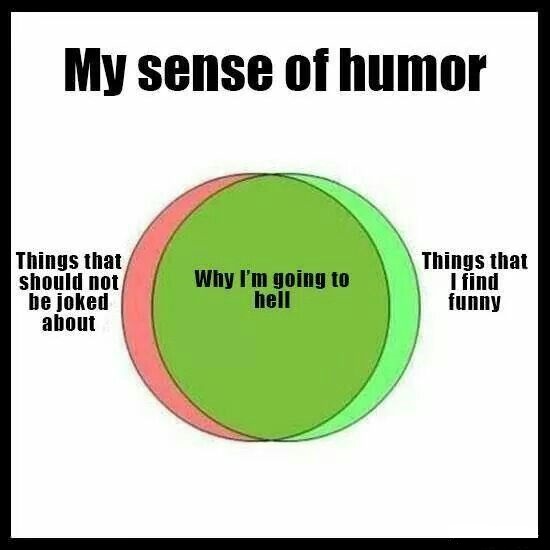Last night NRA spokeswoman Dana Loesch stuck her head (neck, shoulders and the rest of her body) into the lion’s mouth at a CNN “town hall”. I want to pull out this one exceptionally pithy quote, because it’s the best response I’ve heard to those who keep demanding more gun control in the face of the failure of gun control.
Don’t stretch your brain, because if you’re able to deal with elementary logic, you know that the demands of the gun banners equate to a demand for a magic wand, and there are no magic wands.
Nothing I’ve heard trotted out as a potential solution since the latest murderous rampage appears to have any hope of stopping the next murderous rampage. The closest thing is finding some way to identify these men (Sorry guys, but it’s us men doing this–when’s the last time we had a female shooter at one of these events?) before they strike. Great idea, if someone happens to find a crystal ball. I expect that to work as well as finding that magic wand.
We’ve had spree killers and mass murders in the world since forever. Wikipedia has a list with entries dating back to 1543. We hear more about them now because we communicate better. CNN, FoxNews, MSNBC and a host of others are all on TVs in every place I go, or so it seems. Even my barber can’t do without the noise. We know that the increased publicity about a suicide actually increases the likelihood of more suicides–it’s called the Werther Effect. There’s now evidence that there is a similar effect relating to mass murders. Great.
From the historical data I can find online, it seems that spree killers and mass murders, while known historically, are more prevalent in modern times, say the last 150 or so years. Why? Obviously, technology has to play some part. Being brutally honest with ourselves, it’s easier to kill a bunch of people with a magazine fed firearm than it is with a rock. But that can’t be the only factor, because these things have been happening for hundreds of years and probably much longer. Humans have killed humans since the Og picked up a rock and conked Mog because he wanted that tasty morsel of mammoth meat Mog had.
It appears that these occurrences have become more prevalent in the last 40 years based on data. Why is that? It isn’t because guns suddenly became more available or more easily available. Restrictions on guns and gun purchases, contrary to the piteous whines of gun banners and the media, are at their highest point in US history. It also can’t be because guns have suddenly become more deadly in some way. The AR-15 has been readily available in the civilian market since the late 1980s, and other so-called “assault rifles” have been available for nearly as long. If it was the guns, we would have seen this crescendo of violence far sooner.
Looking around the Intertubz to see if I could find any academic work on the subject, I stumbled across a non-academic piece on Medium, The Cost of a Good Story: What the Mass Media Doesn’t Tell You About Mass Murder. Author Anthony Galli makes a decent case that we, the media consuming public, working hand in glove with a media in search of ever more sensational stories to feed a public that is becoming thick-skinned to televised bloodshed and suffering, have built a feedback loop that has unwittingly incorporated that “mass murder begets mass murder effect” I mentioned earlier. The result is outbreaks of spree killings/mass murders followed by periods of calm, followed by another outbreak.
He also believes that the potential mass murderer is motivated by fame, and that the media attention to the current killer simply helps to spin up the next killer. Where have we heard that before?
Galli proposes that we as media consumers need to “chide” the media every time they report on a mass murder in a way that gives the killer any attention. Don’t use his name, blur out his face if he’s on camera. Deny him the fame he craves. Sounds like a reasonable idea, at the very least it couldn’t hurt. The trick would be getting the media to go along with it.
Galli also points out that we are easily distracted by statistics. We’re far more concerned by the realistically very few people who are killed per year in mass murders, something that has pretty much been proven time after time we can do little about (other than being armed and taking responsibility for our own safety, but that’s not something I think he’s agree with) and yet we don’t seem concerned with the 37,000 people who die every year in traffic accidents, which is something we could effect.
This’s a good point. I believe there is actually a psychological term for this, but it escapes me (maybe someone else who does remember will be so kind and leave it as a comment), but we have a natural propensity to do this sort of thing.
I’m sure there may be other things I’m not think of at the moment. But we’ve trod this ground so often that it’s getting so I can’t see it clearly any more. Familiarity is breeding contempt, but it is breeding brain fog.
Can we pull a solution out of what we have so far? If we’re looking for a magic wand that will fix the problem, the answer is no. We may have a tool or two that we as a society could use to help ameliorate the issue, if we could persuade the other side to listen, which I think is unlikely.
Instead, I think we’re going to remain two groups of chimpanzees screaming at each other for some time to come. Each side wants something that the other either can’t or won’t give, so the screaming will continue. Perhaps one side will pick up some sticks and beat the other into submission. That’s been tried before, and worked to some extent. Then the other side picked up some sticks and fought back, so now we all have sticks and we’re still screaming.
But remember, until we do come up with some answer or some improvements, we will see this happen again. Some guy is going to want his 15 minutes of fame, and he’ll find a soft target to achieve it. As individuals, all we can do is carry, train and stay vigilant.
Maybe, in the end, that’s all the answer we really need.


